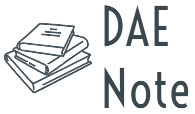4.1K
Comprehensive Guide to the DAE Electrical Curriculum: First Year, Second Year, and Third Year
Looking for DAE Electrical Curriculum: Course Outline & Syllabus PDF? This guide provides a complete breakdown of the syllabus, helping students understand course details and prepare effectively.
First Year Course Table
| Course Code | Course Title | Theory (T) | Practical (P) | Credits (C) |
|---|---|---|---|---|
| Gen 111 | Islamiat/Pakistan Studies | 1 | 0 | 1 |
| Eng 112 | English | 2 | 0 | 2 |
| Math 123 | Applied Mathematics-I | 3 | 0 | 3 |
| Ch 132 | Applied Chemistry | 1 | 3 | 2 |
| Comp 122 (Rev.) | Introduction to Computer Applications | 1 | 3 | 2 |
| ET 115 (Rev.) | Principles of Electrical Engineering | 3 | 6 | 5 |
| ET 121 | Basic Electrical Drawing | 0 | 3 | 1 |
| ET 146 | Workshop Practice-I | 1 | 15 | 6 |
| i) Wiring | 1 | 6 | 3 | |
| ii) Metal Work | 0 | 3 | 1 | |
| iii) Wood Work | 0 | 3 | 1 | |
| iv) Welding | 0 | 3 | 1 | |
| Total | 12 | 30 | 22 |
You can also explore Electrical First Year subjects for detailed information and downloadable PDF Notes.
Second Year Course Table
| Course Code | Course Title | Theory (T) | Practical (P) | Credits (C) |
|---|---|---|---|---|
| Gen 211 | Islamiat/Pakistan Studies | 1 | 0 | 1 |
| Math 233 | Applied Mathematics-II | 3 | 0 | 3 |
| Phy 222 | Applied Physics | 1 | 3 | 2 |
| Mgm 221 | Business Management & Industrial Economics | 1 | 0 | 1 |
| ET 213 | D.C. Machines & Batteries | 2 | 3 | 3 |
| ET 223 | Electrical Instruments & Measurements | 2 | 3 | 3 |
| ET 233 (Rev.) | Utilization of Electrical Energy | 2 | 3 | 3 |
| ET 242 | Installation Planning & Estimating | 1 | 3 | 2 |
| ET 251 | Applications of Computers in Electrical Tech. | 0 | 3 | 1 |
| ET 263 (Rev.) | Basic Electronics | 2 | 3 | 3 |
| ET 271 | Workshop Practice-II (Basic Machine Shop) | 0 | 3 | 1 |
| Total | 15 | 24 | 23 |
You can also explore Electrical 2nd Year subjects for detailed information and downloadable PDF Notes.
Third Year Course Table
| Course Code | Course Title | Theory (T) | Practical (P) | Credits (C) |
|---|---|---|---|---|
| Gen 311 | Islamiat/Pakistan Studies | 1 | 0 | 1 |
| Mgm 321 | Business Communication | 1 | 0 | 1 |
| Mgm 311 | Industrial Management & Human Relations | 1 | 0 | 1 |
| ET 316 (Rev.) | A.C. Machines | 4 | 6 | 6 |
| ET 322 | Power Plant & Energy Conservation | 2 | 0 | 2 |
| ET 335 (Rev.) | Transmission, Distribution, and Protection of Electrical Power Systems | 4 | 3 | 5 |
| ET 343 (Rev.) | Telecommunication | 2 | 3 | 3 |
| ET 353 | Repair & Maintenance of Electrical Equipment | 1 | 6 | 3 |
| ET 364 (Rev.) | Digital & Industrial Electronics | 3 | 3 | 4 |
| Total | 19 | 21 | 26 |
You can also explore Electrical Third Year subjects for detailed information and downloadable PDF Notes.
Download PDF
Was this article helpful?
Yes0No0
